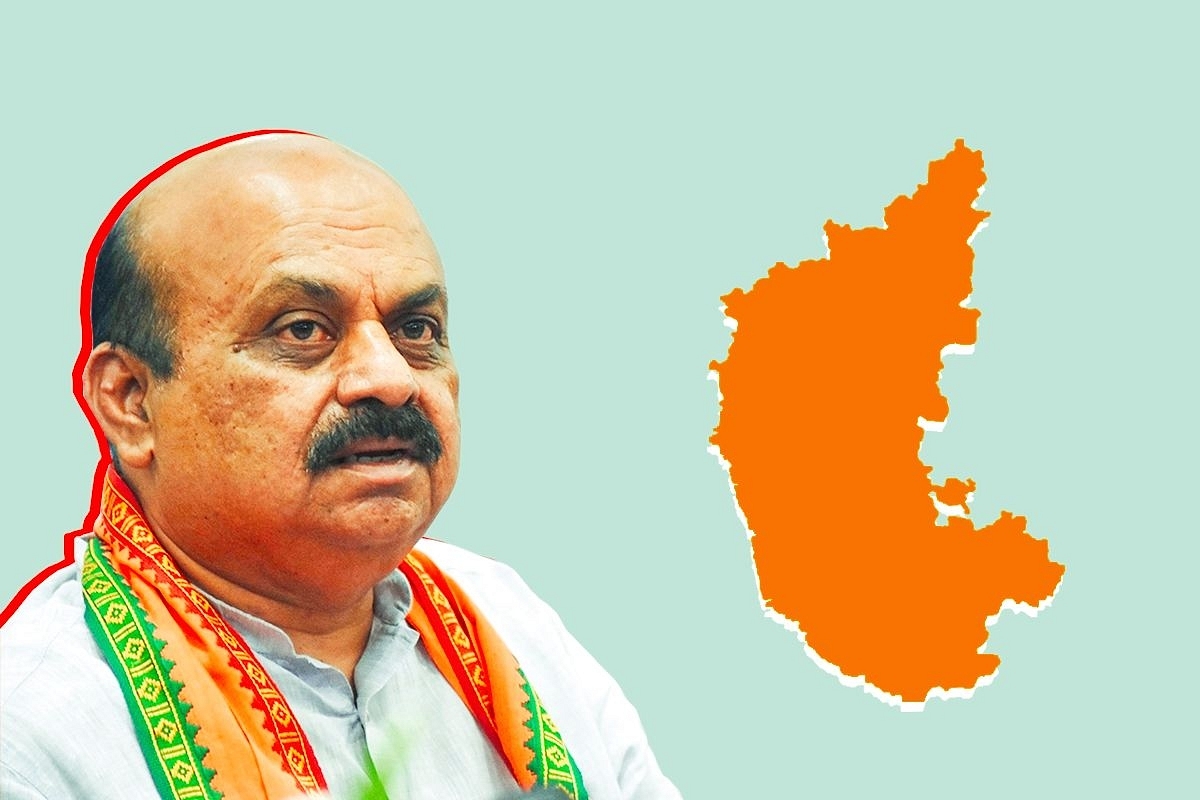News Brief
SC Hearing: Karnataka BJP Govt Makes A Strong Case Against 'Unconstitutional' Religion-based Quota, Defends Abolishing 4% Muslim Reservation

Karnataka Chief Minister Basavaraj Bommai.
Bharatiya Janata Party (BJP)-led Karnataka government made a strong case before the Supreme Court against religion-based quota and defended its decision" to scrap reservation on the sole basis of religion for the Muslim community, saying it is unconstitutional and violative of Article 14 to 16 of the Constitution.
The state government was responding to a batch of petitions challenging its two orders dated March 27, scrapping the 4 per cent quota for Muslims in the 2B category of the 'Other Backward Castes' and granting benefits of increased quota to Vokkaligas and Lingayats in admissions and appointments to government jobs.
The state government argued that religion-based quota is against the principles of social justice and secularism.
"Including within the said ambit an entire religion would be an antithesis to the concept of social justice and the ethos of the Constitution. It is humbly submitted that therefore reservation cannot be extended to any community on the sole basis of religion", the government argued.
The state government also made a case that provision of reservation based on religion would also be contrary to the concept of secularism.
In its affidavit, the state justified the removal of the four per cent quota for Muslims, saying reservation on the basis of religion was unconstitutional. The timing of the decision (just before the Assembly poll) was immaterial.
"Timing of decision, etc, are immaterial without the petitioners clearly demonstrating that the reservation on the basis of religion is constitutional and permissible," the state argued.
"Merely because reservations have been provided in the past on the basis of religion, it is no ground to continue the same for perpetuity, more so when it is on the basis of an unconstitutional principle," it said.
"The state government took a conscious decision to not continue with the reservation on the sole basis of religion as the same is unconstitutional and contrary to the mandate of Article 14 to 16 of the Constitution of India. Therefore, vide two orders dated March 27, 2023, four per cent reservation in favour of Muslim community was deleted and the members of the Muslim community were now allowed to claim benefit of reservation under EWS scheme which is at 10 percent," it added.
The state government said historically, Karnataka has adopted conscious governance initiatives through affirmative action to address social and economic backwardness and to make public service more inclusive and representative of the population.
It referred to three Backward Classes Commission reports and said as far as the reservation solely on the basis of religion is concerned, it is submitted that the same is not justified.
The state government, in its affidavit, also said that the initial inclusion of the Muslim community into the category of other backward classes in 1979 was contrary to the recommendations of the first backward class commission headed by LG Havanur.
The state government added it is pertinent to note that the groups within the Muslim Community who were found to be backward and found a mention in Group I of the 2002 reservation order continue to enjoy the benefits of reservation.
The Karnataka government also pointed out there is no reservation given to the Muslim community on the basis of religion as a whole in the Central List.
"Even throughout the country, it is believed verily, except State of Kerala, there is no state that provides for reservation for the Muslim community as a whole," the state government said.
The government argued that the Muslim community suffers no prejudice as they can avail the benefit of EWS reservation which is 10 per cent.
Last month, the BJP government abolished religion-based reservations in the state. It scrapped the 4 per cent reservation for Muslims in the state under the Other Backward Classes (OBC) category and distributed it to two politically influential communities — Veerashaiva-Lingayats and Vokkaligas — at 2 per cent each in jobs and admissions in educational institutions.
The state cabinet also decided that the Muslim community in the state can now avail of benefits under the 10 per cent quota for Economically Weaker Sections (EWS). It also recast the internal reservation formula for the 17 per cent quota for around 101 groups classified as Schedule Caste (SC)
Introducing ElectionsHQ + 50 Ground Reports Project
The 2024 elections might seem easy to guess, but there are some important questions that shouldn't be missed.
Do freebies still sway voters? Do people prioritise infrastructure when voting? How will Punjab vote?
The answers to these questions provide great insights into where we, as a country, are headed in the years to come.
Swarajya is starting a project with an aim to do 50 solid ground stories and a smart commentary service on WhatsApp, a one-of-a-kind. We'd love your support during this election season.
Click below to contribute.
Latest